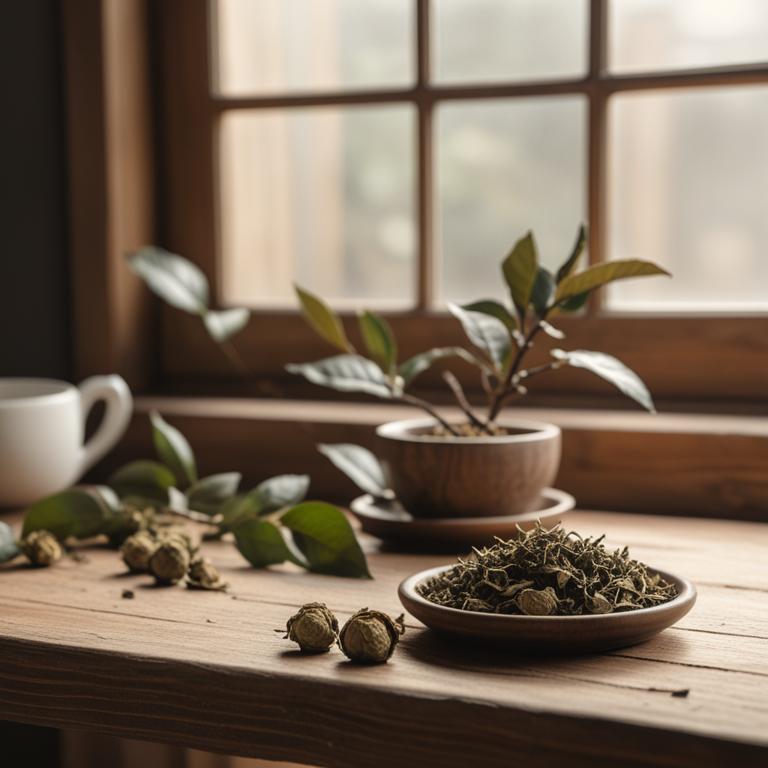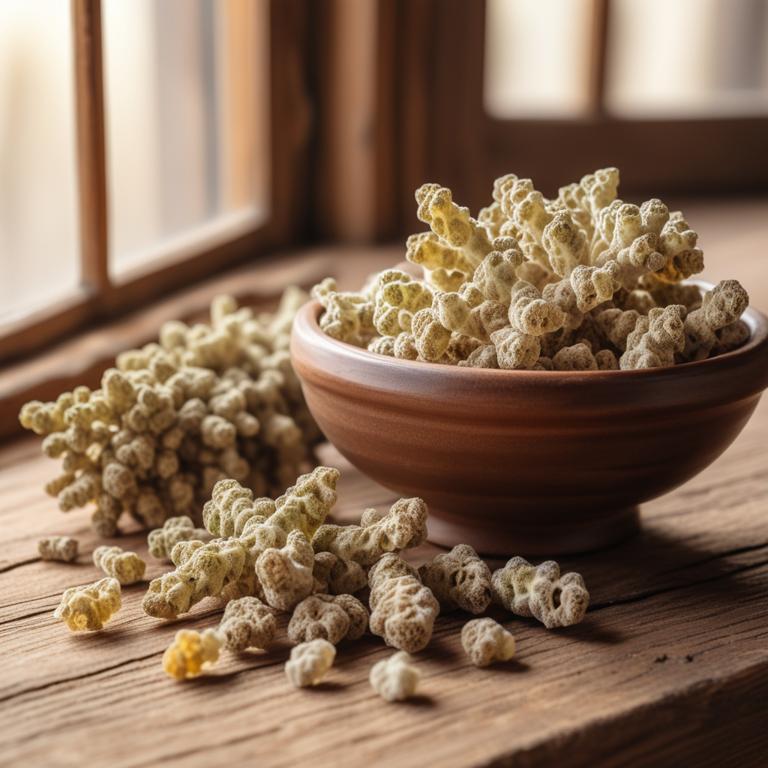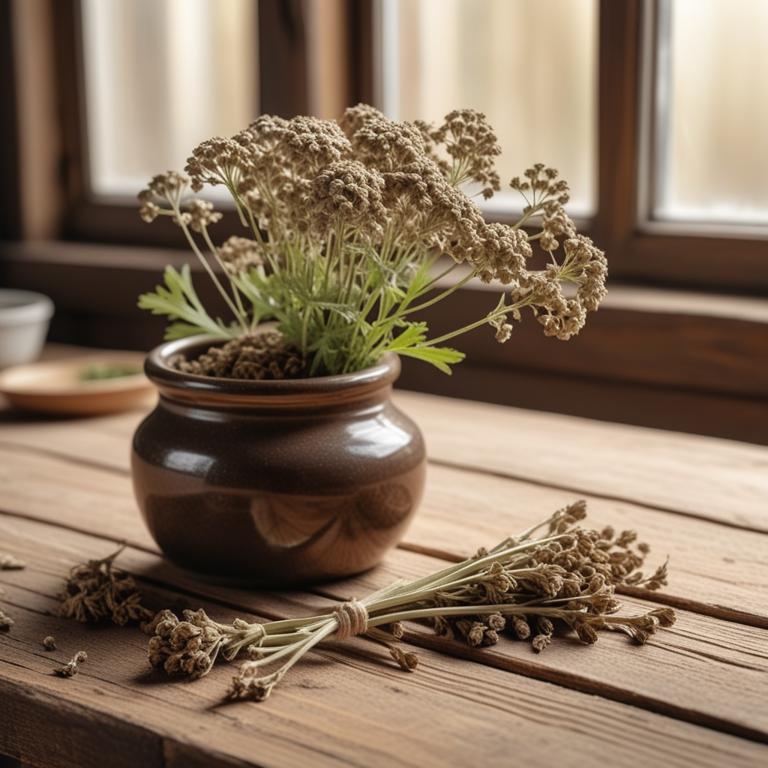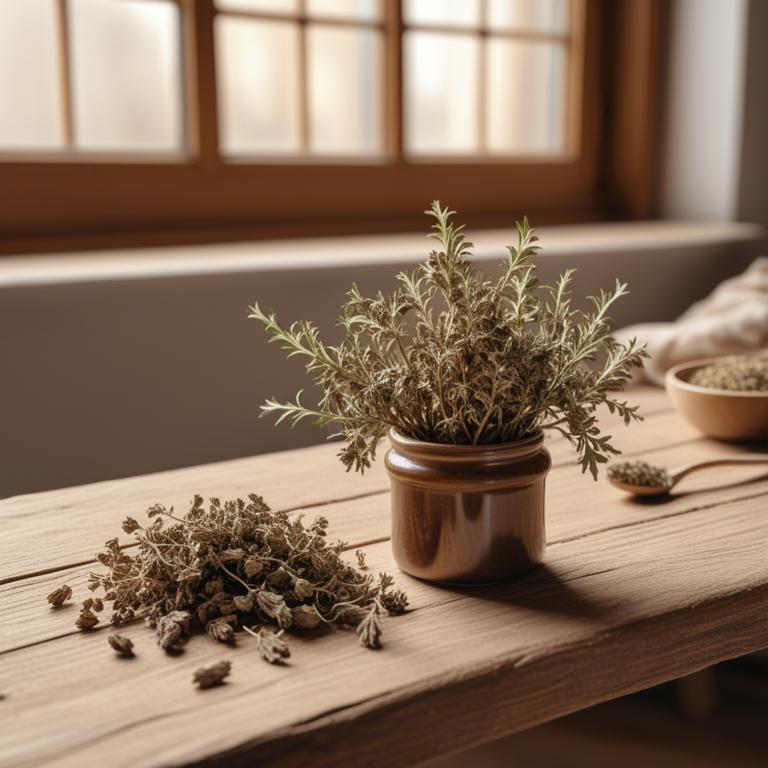Updated: Dec 1, 2024
Understanding Arthritis: Causes, Medicinal Herbs, and Herbal Preparations
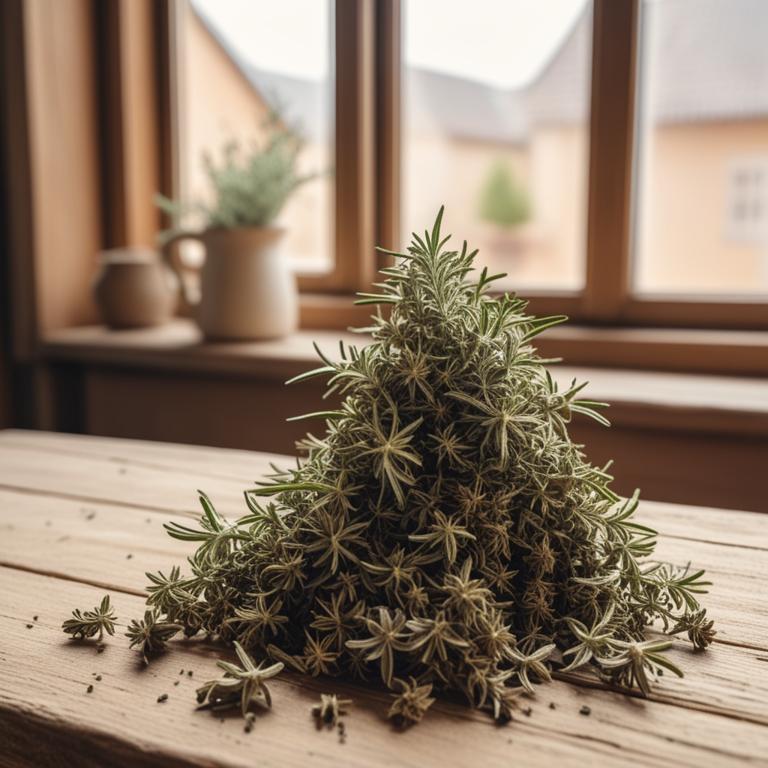
Arthritis is a condition that affects millions of people worldwide, causing pain and stiffness in the joints.
It can make everyday tasks, like getting dressed or walking, a struggle. The exact cause of arthritis is not known, but it's thought to be related to a combination of factors, including genetics, lifestyle, and environmental factors. As the joints wear out, the cartilage that cushions them starts to break down, leading to inflammation and pain. Some people are more prone to arthritis due to their family history or age. But there is hope for relief. Herbs like turmeric, with its active compound curcumin, have anti-inflammatory properties that can help reduce joint pain and swelling.
Ginger, another popular herb, has similar benefits and can also help with digestion. Willow bark, which contains salicin, a natural pain reliever, has been used for centuries to ease arthritis symptoms. You can use these herbs in various forms to help manage your arthritis. You can make a warm tea by steeping dried ginger or turmeric roots in hot water. Some people also take supplements, like capsules or tablets, containing these herbs. Others prefer to apply topical creams or oils to the affected areas.
Whatever method you choose, it's essential to talk to a healthcare professional before using any herbal remedies, especially if you're already taking medications.
Table of Contents
What initiates the condition of arthritis?
The main causes of arthritis are wear and tear, genetics, and immune system problems.
Osteoarthritis (OA) is the most common type, caused by wear and tear on joints over time. This happens when cartilage, the cushioning layer between bones, breaks down due to age, injury, or repetitive stress. For example, people who work on their feet or have a family history of OA are more likely to develop it. Rheumatoid Arthritis (RA) is an autoimmune disease, where the immune system mistakenly attacks healthy tissues in the joints. This causes inflammation, pain, and stiffness, especially in the hands and feet. Genetics play a role, as people with a family history of RA are more likely to develop it. Triggers like infections or stress can also set off the immune system's attack.
Psoriatic Arthritis (PsA) is another autoimmune disease, linked to psoriasis, a skin condition. When people with psoriasis develop PsA, their immune system starts attacking healthy tissues in the joints, causing inflammation and pain. Genetics and family history are also risk factors for PsA. Gout is caused by excess uric acid in the blood, which can form sharp, needle-like crystals in the joints. This can happen when people eat too much meat, seafood, or sweets, or don't drink enough water. Genetics and medical conditions like kidney disease or high blood pressure can also increase the risk of gout. Systemic Lupus Erythematosus (SLE) is an autoimmune disease that can affect multiple parts of the body, including the joints. People with SLE have an abnormal immune response, which can cause inflammation and pain in the joints, as well as other symptoms like fever and fatigue.
Genetics and hormonal imbalances can contribute to the development of SLE.
What are the benefits of employing herbs in the management of arthritis?
Using herbs for arthritis can bring several benefits.
One major advantage is that they can help reduce pain and inflammation, making it easier to move and perform daily tasks. Many herbs have anti-inflammatory properties that can target the root cause of arthritis, rather than just masking the symptoms. This can lead to long-term relief from pain and stiffness.
Additionally, herbs can help improve joint mobility and flexibility, which is especially important for people with arthritis who may struggle with movement. Some herbs also have antioxidant properties, which can help protect the body from damage caused by free radicals and slow down the progression of the disease. Furthermore, herbs can be a natural and gentle way to manage arthritis symptoms, without the harsh side effects often associated with prescription medications.
This makes them a popular choice for people who want to try alternative treatments or who are looking for a more holistic approach to managing their condition.
What are the leading medicinal herbs for arthritis treatment?
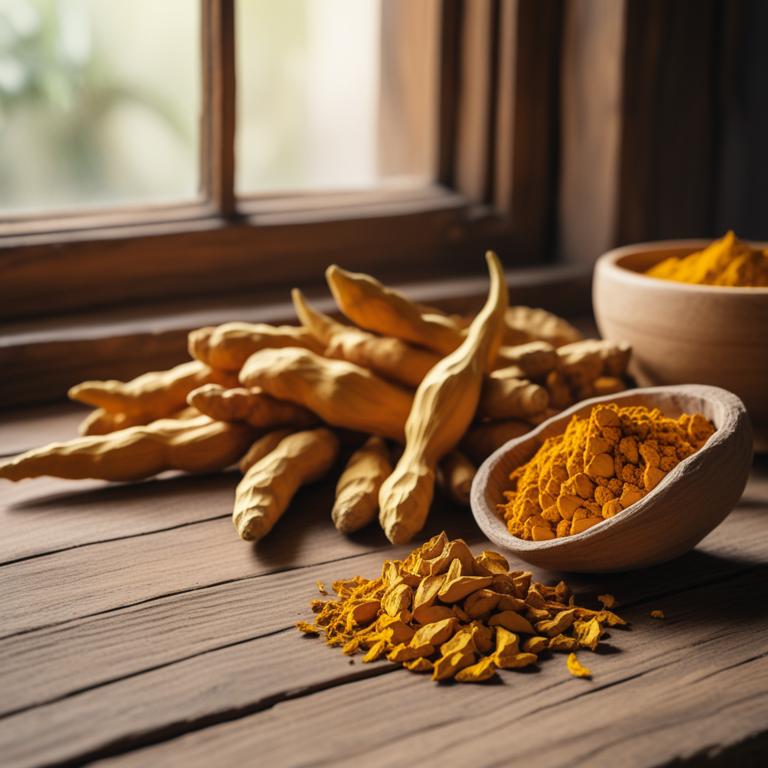
Herbs have been used for centuries to help manage arthritis symptoms, and many of them have been backed by scientific research.
One of the most well-studied herbs is Curcuma longa, also known as turmeric. Curcuma longa contains a powerful compound called curcumin, which has strong anti-inflammatory properties that can help reduce joint pain and swelling. Another herb that has shown promise is Zingiber officinale, also known as ginger. Ginger has anti-inflammatory compounds called gingerols and shogaols, which have been shown to reduce pain and inflammation in people with arthritis. Some studies have even found that ginger can be as effective as pain medications in reducing joint pain. Licorice root, or Glycyrrhiza glabra, is another herb that has been used to help manage arthritis symptoms. Glycyrrhizin, a compound found in licorice root, has anti-inflammatory properties that can help reduce joint pain and swelling.
However, it's worth noting that glycyrrhizin can have side effects, especially when taken in large amounts. Rheum rhabarbarum, also known as rhubarb, is a type of herb that has been used to help manage arthritis symptoms. It contains compounds called anthraquinones, which have anti-inflammatory properties that can help reduce joint pain and swelling. Finally, Boswellia serrata, also known as frankincense, is an herb that has been used to help manage arthritis symptoms. Boswellia contains compounds called boswellic acids, which have anti-inflammatory properties that can help reduce joint pain and swelling. Some studies have even found that boswellia can help reduce joint inflammation and improve joint function in people with arthritis. It's worth noting that while these herbs may be beneficial for managing arthritis symptoms, they should not be used as a replacement for medical treatment.
If you have arthritis, it's always best to talk to your doctor before trying any new treatments.
What are the most popular herbal preparations for managing arthritis?
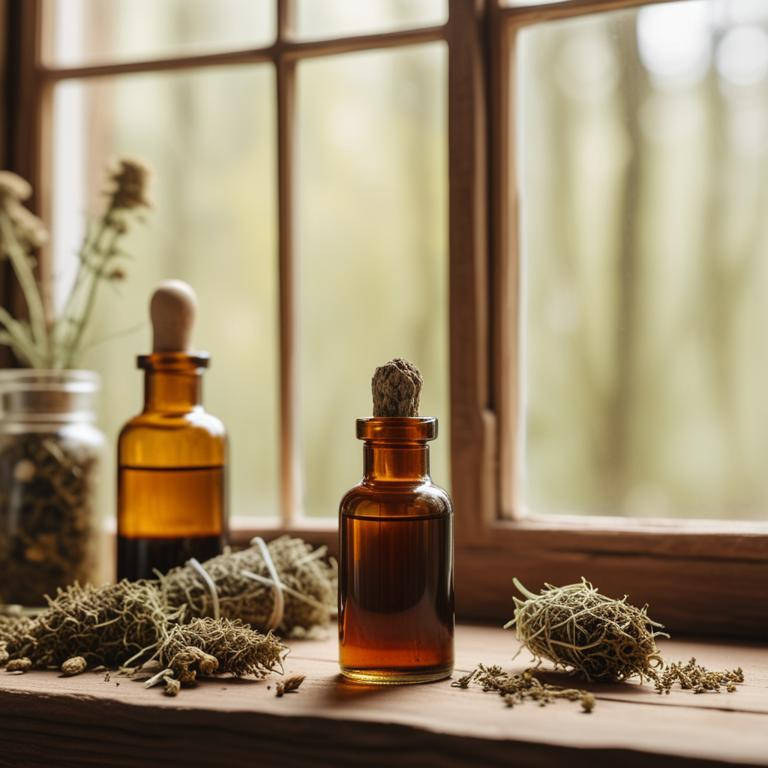
Herbal preparations can be a great help for people with arthritis.
When we take herbal medicines in capsule form, the active ingredients get absorbed quickly into our bloodstream, providing fast relief from pain and inflammation. Tinctures are liquid extracts that can be taken in small amounts, making them easy to use and store. They're also good for people who have trouble swallowing pills. Decoctions are liquid extracts made by steeping herbs in hot water, and they're especially good for herbs that are hard to digest. This method helps bring out the good stuff in the herbs, making them more effective. Infusions are similar to decoctions, but they're made with hot water and are often used for herbs that are easy to digest. They're a great way to enjoy the flavor and aroma of herbs while getting the benefits.
Herbal salves are topical creams or ointments that we apply directly to the skin. They're perfect for arthritis in the joints, as they can provide quick relief from pain and inflammation. Salves often contain anti-inflammatory compounds that help reduce swelling and promote healing. Some herbs, like turmeric and ginger, have potent anti-inflammatory properties that make them excellent choices for arthritis salves. Herbal preparations are also often free from side effects, which is a big advantage over some pharmaceuticals. Many people find that herbal remedies work well with their regular medication, and they can even help reduce the need for painkillers. Some herbs, like willow bark and meadowsweet, contain compounds that have been used for centuries to relieve pain and inflammation.
When used correctly, herbal preparations can be a safe and effective way to manage arthritis symptoms.
Additional Resources:
What herbs may exacerbate arthritis symptoms?
If you have arthritis, it's a good idea to be careful with certain herbs.
Cinchona officinalis, also known as the fever tree, contains a chemical that can thin your blood and increase the risk of bleeding. If you're already experiencing joint pain and inflammation, you don't need to add the risk of internal bleeding to your list of worries. Taxus baccata, or the yew tree, is another herb to approach with caution. Its leaves contain a toxic compound that can be fatal if ingested in large amounts. While you might be tempted to try it as a natural remedy, the risks far outweigh any potential benefits. Valeriana officinalis, or valerian root, can cause drowsiness and dizziness in some people.
If you already have arthritis, you may be experiencing joint pain and stiffness. Taking valerian root could make it harder to move around and perform daily tasks, which can be frustrating and debilitating. Sanguinaria canadensis, or bloodroot, is another herb that can be problematic for people with arthritis. It can cause stomach problems, including nausea and vomiting, which can be uncomfortable and painful. You don't need to add more discomfort to your life. Hypericum perforatum, or St. John's Wort, can interact with certain medications, including pain relievers and anti-inflammatory medications. If you're already taking medication for your arthritis, taking St. John's Wort could lead to serious side effects or make your medication less effective.
It's always a good idea to talk to your doctor before trying any new herbs, especially if you're already taking medication.
FAQ
Are there any specific herbs that can prevent arthritis?
Turmeric contains a compound called curcumin, which has anti-inflammatory properties that may help prevent arthritis.
Ginger also has anti-inflammatory properties and is known to reduce pain and swelling. Boswellia, a herb commonly used in Ayurvedic medicine, has been shown to reduce joint pain and inflammation.
These herbs may help alleviate arthritis symptoms.
Is it safe to use herbal remedies for arthritis during pregnancy?
Using herbal remedies for arthritis during pregnancy can be tricky.
Some herbs might harm the baby, while others might not be absorbed properly by the mother. For example, ginger can help with nausea, but too much of it can cause bleeding.
It's essential to carefully research and understand the risks before using any herbal remedy.
Are there any herbs that can reduce the frequency of arthritis?
Turmeric contains a compound that may help reduce arthritis symptoms.
It has anti-inflammatory properties, which can ease joint pain and stiffness. Ginger is another herb that may help reduce arthritis frequency by reducing inflammation and pain.
Both herbs have been used for centuries to help manage arthritis symptoms and improve overall well-being.
Can i combine different herbal remedies for arthritis?
You can combine different herbal remedies for arthritis, but do it carefully.
Start with small amounts of each remedy and see how your body reacts. Some herbal combinations might work better than others, so be patient and adjust as needed.
Ginger and turmeric can complement each other, for example, but it's up to you to experiment and find what works best.
Related Articles
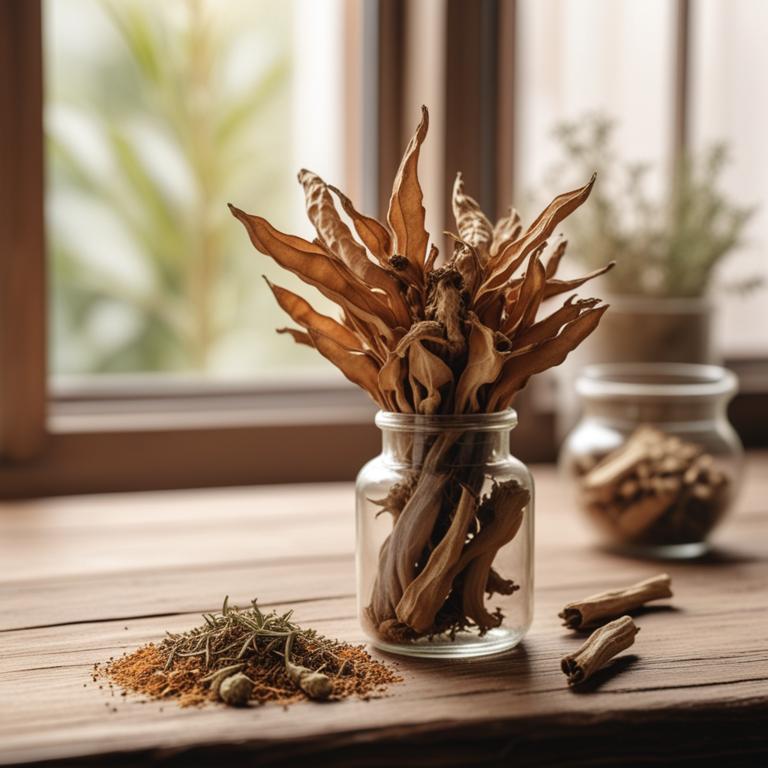
Understanding Lower Back Pain: Causes, Medicinal Herbs, and Herbal Preparations
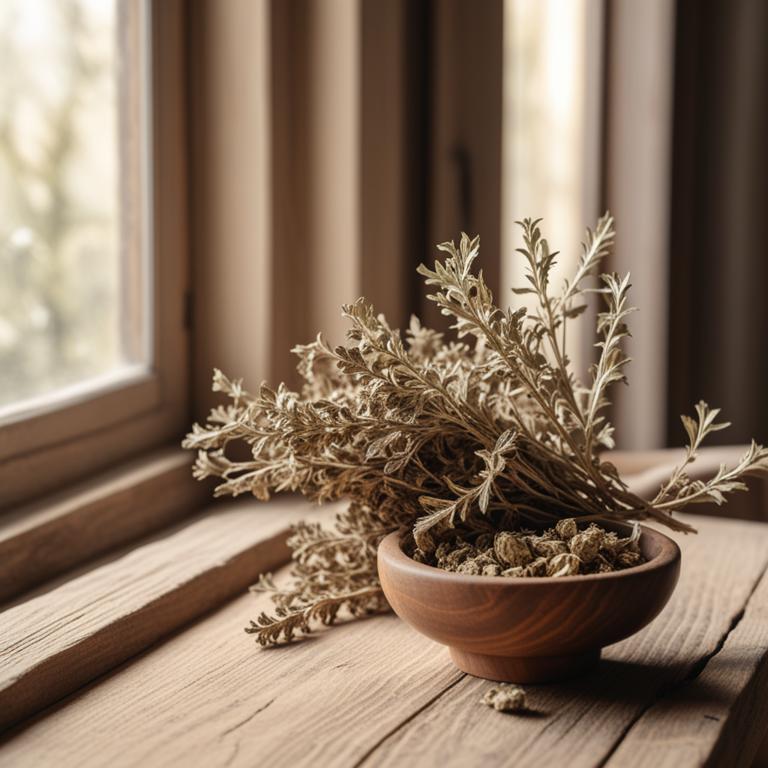
Jaw Lock: Causes, Medicinal Herbs, and Alternative Herbal Treatments
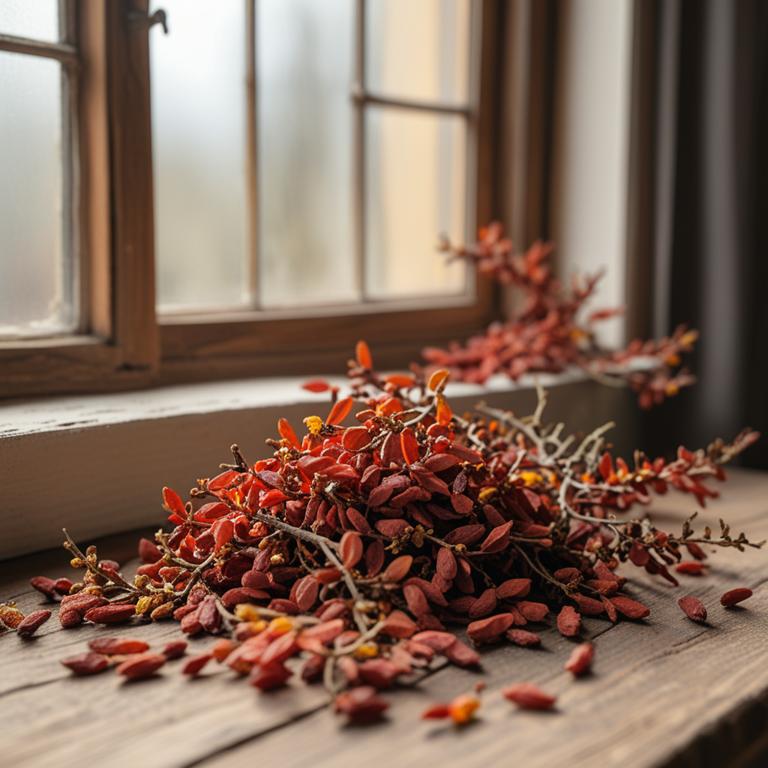
The Causes of Gout: Exploring Herbal and Medicinal Treatments
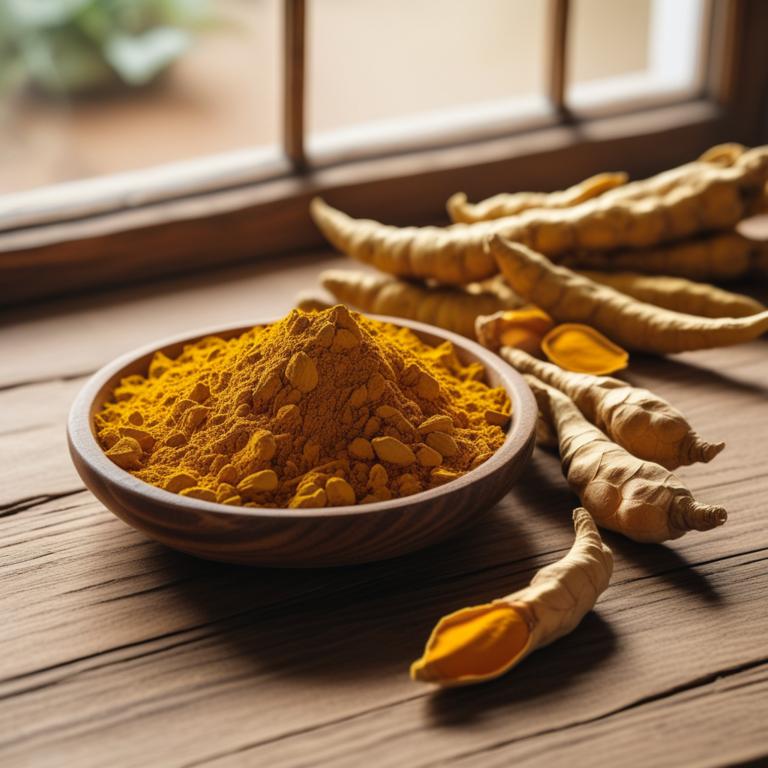
Causes, Symptoms, and Herbal Preparations for Plantar Fasciitis

Jammed Finger Care: Causes, Medicinal Herbs, and Preparations
